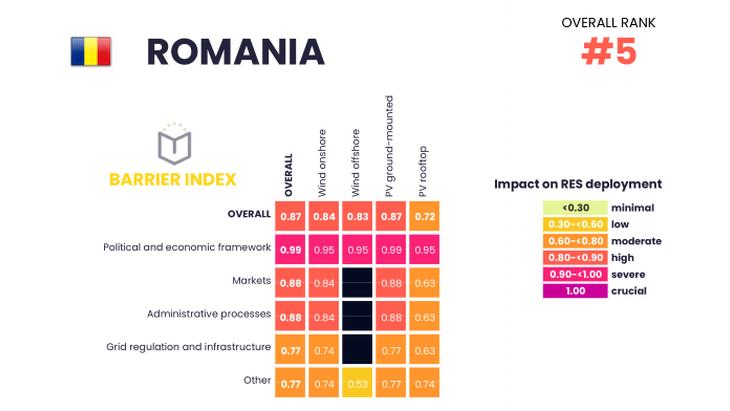The independent energy consulting firm eclareon has published a new first-of-its-kind report, identifying and assessing the barriers blocking wind and solar energy projects in all 27 EU countries and the UK.
The report comes less than a week after the European Union announced plans “to make Europe independent from Russian fossil fuels well before 2030” as a response to President Putin’s war in Ukraine. Accelerating the construction of wind and solar projects will be essential if the EU and UK are to break Putin’s grip on the European energy market.
Eclareon’s new research finds significant barriers to projects in all countries, with administrative processes like planning and permitting being the most common and most serious issues blocking new renewables developments in Europe, which also highlights the need for increasing resources at the permitting agencies. Under the report’s index system, no country had “low” or “minimal” barriers. In fact, researchers found that barriers in many places made the rollout of wind and solar projects effectively impossible.
Romania is the 5th country in the overall ranking with an index of 0.87, which is considered high. The main barrier is identified as “frequent amendments to main Renewable Energy Law”, and the power source most threatened is PV ground-mounted
In respect to the political and economic framework, Romania has an index value of 0.99, which is considered “severe”. Romania doesn’t have a reliable and long-term strategy for RES, clear sector targets and a consistent regulatory framework. This makes renewable projects inevitably stalled, writes eclareon’s experts. In România, the deployment of renewables is hampered by the unreliability of the support framework, either caused by frequent regulatory amendments, or by the lack of transparency in the support method.
Romania is the second country in the ranking for the market after Spain, with an index of 0.88 out of 1. Access to finance is considered “very difficult in Romania mainly because there is no support scheme for RES. Although some technologies are mature enough to compete with conventional energy sources, the lack of revenue predictability makes it very difficult to prove to the banks the financial feasibility of the project, which makes investors struggle in finding financing solutions”.
Many investors have decided to withdraw from the market or have had to call bankruptcy. In many cases, the already awarded loans have to be restructured and stretched over a longer period of time.
According to the wind sector, many investments will be amortized in 30 years, while the life expectancy of an installation is 20 years. Under these conditions, bank loans are only seldom awarded.
By 2021, no guidelines were issued by banks regarding the financing of renewable energy projects, despite the increasing demand from developers, also writes the eclareon research.
